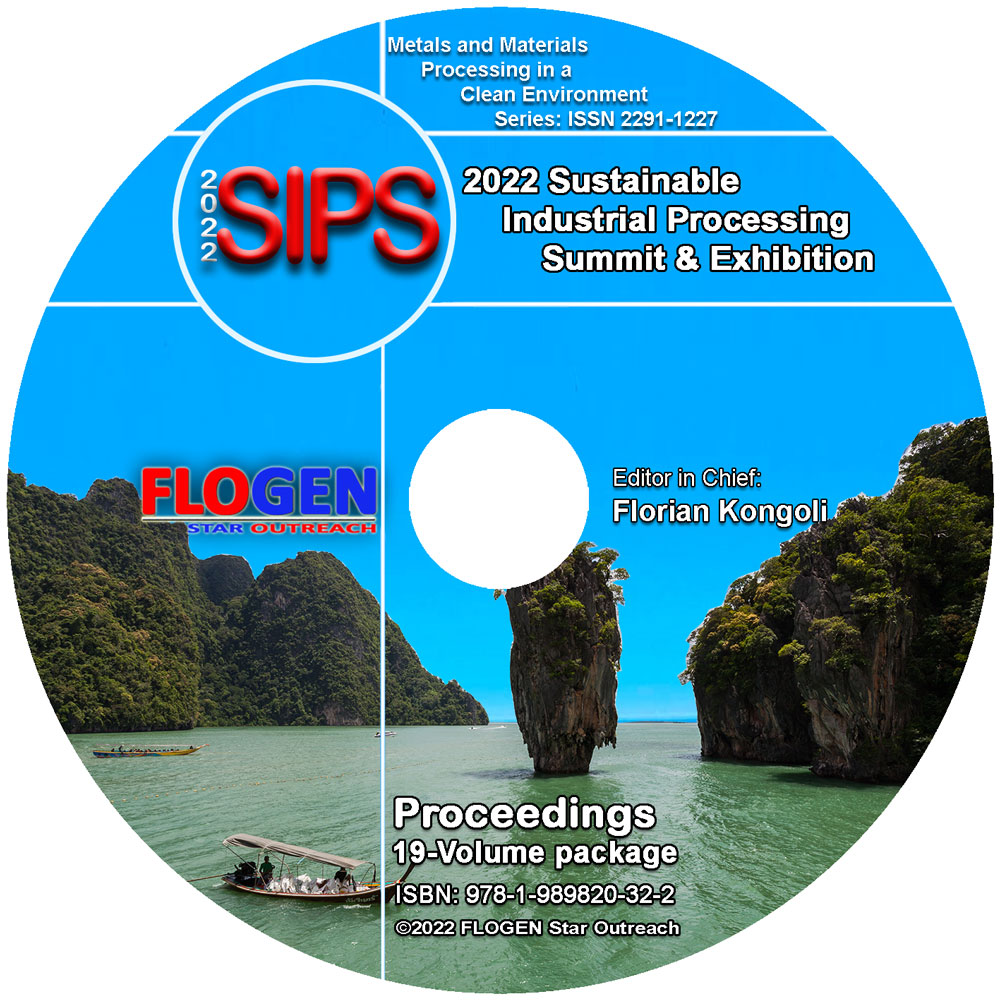2022-Sustainable Industrial Processing Summit
SIPS2022 Volume 18 Intl. Symp on Advanced Materials, Polymers, Composite, Nanomaterials, Nanotechnologies and Manufacturing
| Editors: | F. Kongoli, F. Marquis, N. Chikhradze, T. Prikhna, M. De Campos, S. Lewis, S. Miller, S. Thomas. |
| Publisher: | Flogen Star OUTREACH |
| Publication Year: | 2022 |
| Pages: | 290 pages |
| ISBN: | 978-1-989820-68-1(CD) |
| ISSN: | 2291-1227 (Metals and Materials Processing in a Clean Environment Series) |

CD shopping page
“Maturolifeâ€, Metallization of Textiles To Make Urban Living Of Older People More Independent and fashionable
Andrew Cobley1; Pascal Négré2;1THE FUNCTIONAL MATERIALS RESEARCH GROUP, COVENTRY UNIVERSITY, Coventry, United Kingdom; 2IPM², PARIS (075), France;
Type of Paper: Keynote
Id Paper: 164
Topic: 43
Abstract:
The MATUROLIFE project aims to couple design with advanced material innovation to produce smart furniture, clothing and footwear with assistive functionality. MATUROLIFE products will provide older adults with assistance in their day to day lives to help them remain independent for longer. With an ageing population, there is a need for assistive technology that is acceptable to the user, it should be desirable and discreet. MATUROLIFE aims to achieve this through use of smart textiles. To make textiles smart and enable them to perform an assistive function, they require the integration of electronic components such as sensors. Rather than have such sensors as separate wearable devices, MATUROLIFE aims to integrate them into textiles for application in the design of clothing, footwear and furniture.
The project combines expertise from the creative industries and manufacturing with cutting-edge advances in electrochemistry and nanotechnology. Highly innovative, conductive, multifunctional smart textiles will be developed, as well as a collection of assistive products. The collaboration will enable competitive and sustainable development of the partners involved.
The project has seen significant advancements in terms of both design and scientific development. The materials team have been considering methods for introducing electronic connectivity to a textile, in particular an additive process to coat the fibers within the textile with a thin layer of copper.
There has also been extensive involvement of older adults in the design process through interviews and co-creation workshops in the 9 partner countries. Co-creation activity has involved partners working with older people to develop smart and assistive clothing, footwear and furniture concepts that build on scientific developments whilst being desirable and simple to understand and use.
Building on this co-creation approach, the teams are combining their skills and expertise to progress the most promising emerging technologies, and develop prototypes which will be tested and refined in the coming months.
The project has already been recently awarded in Boston by the Design Management Institute with a Design Value Award for 2019.